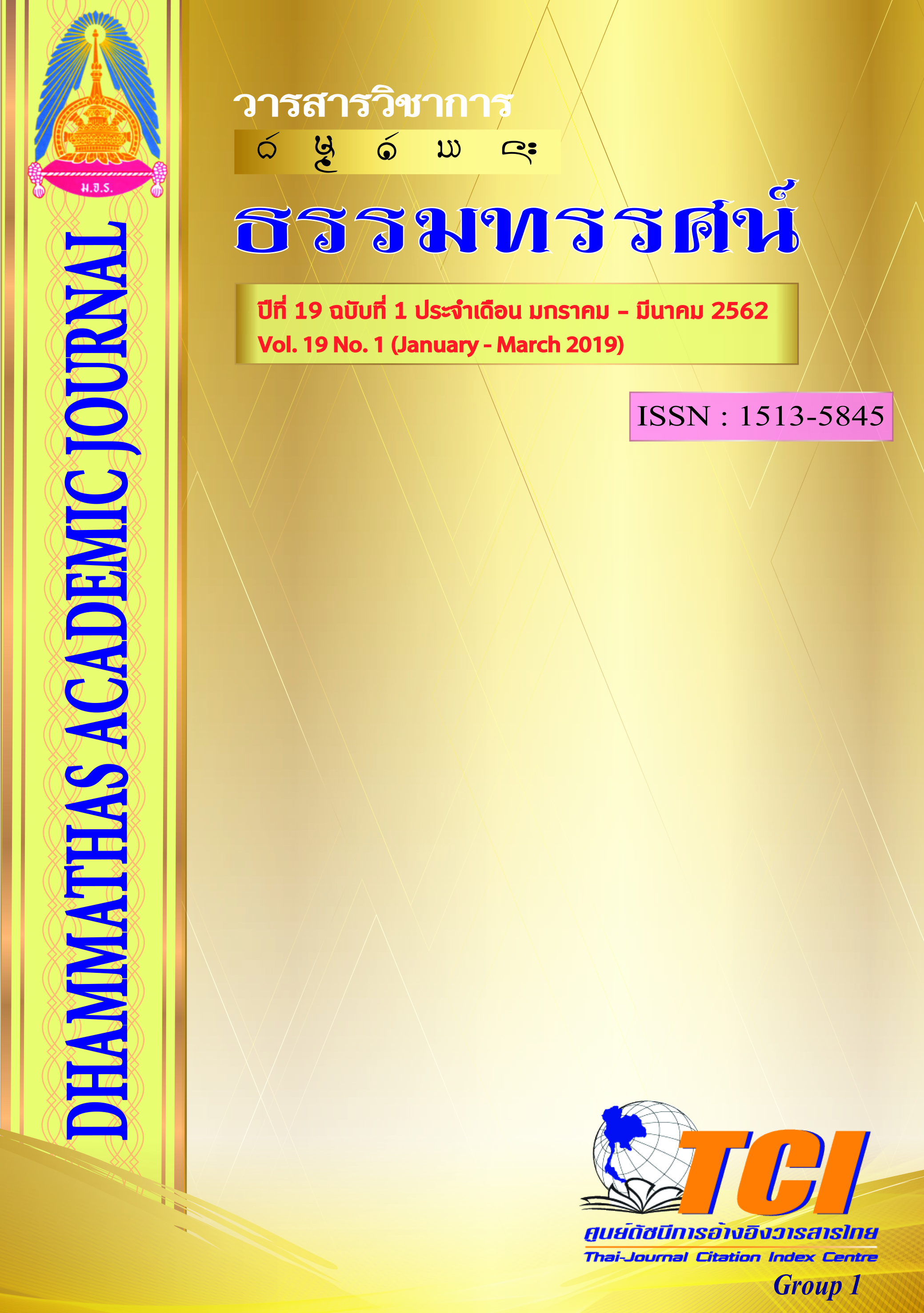Approach of Dhamma Practicing on Knowledge-based Society Participation
Main Article Content
Abstract
This quantitative research is primarily aimed at presenting the development of the Dhamma practice, leading to the participation of the knowledge-based society. This quantitative research is primarily aimed at presenting the development of the Dhamma practice, leading to the participation of the knowledge-based society. The secondary purpose is to study the level of Dhamma practice, participation and knowledge-based society along with analyzing relationship between the main variables and the components of the Dhamma practice, participation including the knowledge-based society, using the behavioral model developed by the literature review in the country and foreign countries on 39 items for collecting data from 365 northeastern village council members for statistical analysis, especially the average analysis, standard deviation, correlational coefficient analysis and multiple regression analysis. The behavioral test was tested for quality of the instruments by research methodology found that the content validity was CVI of .98 and the reliability was .92.
The research found that: Mean, primary variables, participation variable and the knowledge-based society variable were at a high level, the correlation coefficients were middle level to high level for statistically significant at .01 level, with r values between .53 and .80. In addition, the key findings. Factors, composition, Dhammapractice variable, and participation variable can explain the variance in knowledge-based society at the .05 level. Sorted by the influence, participation for benefits, supporting factor participation for planning, tracking, evaluating, wisdom, precepts and meditation. However, the practical implementation should be started with the result of research as a policy statement support offering, personal quality configuration of people who would be a village council for getting the benefit for knowledge-based society with the Dhammapractice which leading the participation of members of the village council.

